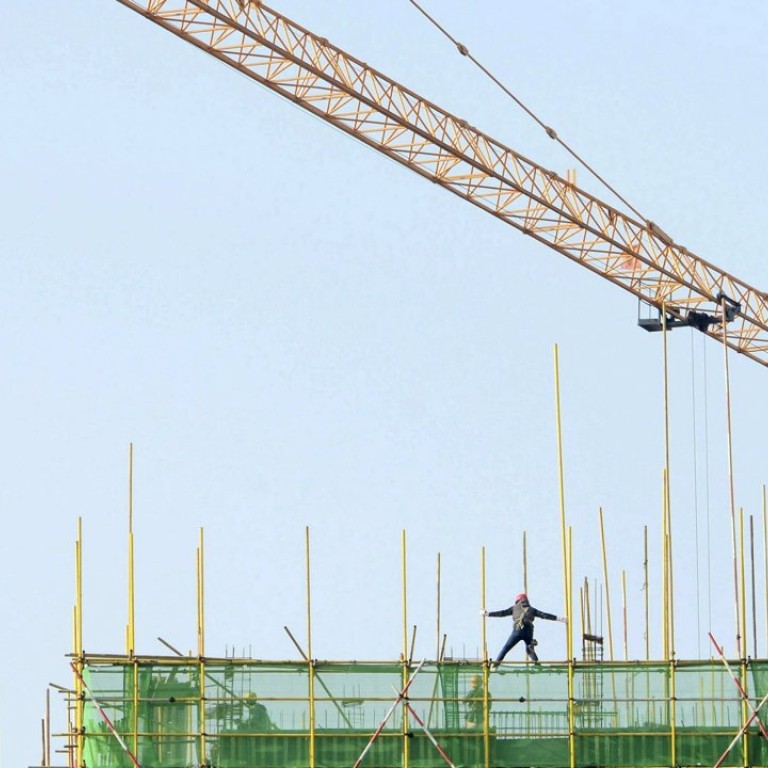
China home prices rise for seventh straight month
Central bank has cut interest rates five times this year
New home prices in mainland China have been on the rise for seven months in a row, two private surveys showed on Tuesday, and analysts expect the trend to continue on the back of more government policies designed to aid the selling down of the industry’s record high inventories.
Data from China Real Estate Index System (CREIS), run by the country’s largest real estate website Soufun, showed the average new home price across the 100 mainland cities on its radar rose 0.46 per cent in November from October.
Rival consultancy China Real Estate Information Corp (CRIC) said its index measuring new home prices in 266 mainland cities increased 0.30 per cent during the same period.
Both indices have charted a recovery since May. They also showed a year-on-year gain for the fourth straight month, with the pace accelerating last month.
More fiscal and monetary policies will come and a warm winter is expected in the housing market
CREIS said the trend would continue as the mainland authorities were expected to roll out further supportive policies, after President Xi Jinping told top economic officials early last month to help the industry sell down inventories.
“More fiscal and monetary policies will come and a warm winter is expected in the housing market,” it said. “Rising demand and soaring land costs will push up housing prices in some tier-one and tier-two cities, while most tier-two and tier-three cities will have lessened inventory pressure to help rein in falling prices.”
Among its cards, Beijing could cut down payments further to 20 per cent, from 25 per cent now, for first-time home buyers. It could also lower such requirement for second home buyers and allow those buying their third flats to borrow from banks.

More recently, there has been talk, sparked by an industry forum, that the government could allow income tax cuts to cover mortgage loan interest payments.
Policies to support the real estate market are always high on the government’s agenda, as the industry
directly contributes 15 per cent of the mainland’s gross domestic product and affects more than 40 other sectors.
The bursting of a housing bubble, as happened in the United States and Japan, is regarded as unlikely on the mainland for now and policymakers are believed to be doing their best to avoid such an outcome.
However, there is cause for concern if one looks at the soaring land prices in top cities like Beijing and Shanghai, and the ever growing debt ratio of developers, especially after a spike in onshore bond issuance this year following regulatory relaxation.
The inclusion of the yuan in the International Monetary Fund’s special drawing rights will also add a negative facet for mainland property firms who have heavy and unhedged exposure to US or Hong Kong dollar-denominated offshore bonds, with economists predicting the yuan will soon be under pressure to weaken.

